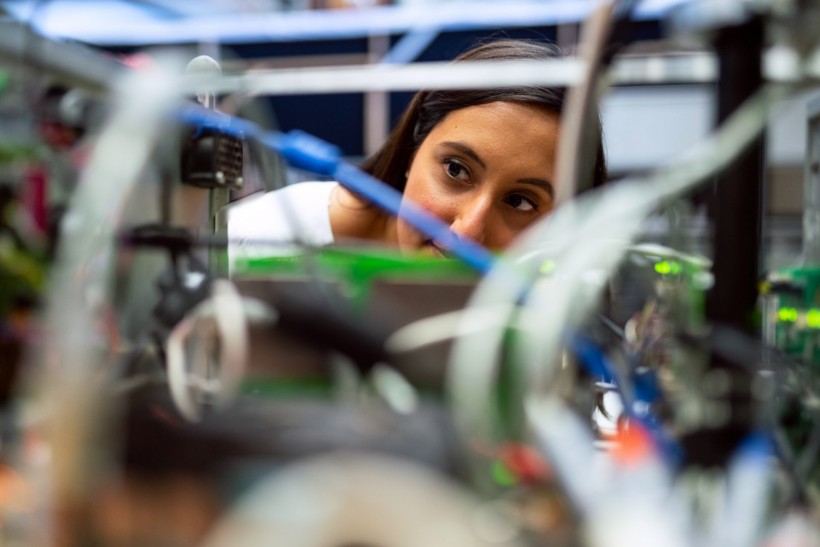
Female space operations engineer inspects rover components
Co-Creation Hub (CcHUB), Africa's biggest innovation center, will launch a $15-million accelerator initiative called The Edtech Fellowship Program to benefit 72 entrepreneurs in Nigeria and Kenya over the next three years.
The company has released a statement saying that the accelerator program would help support and magnify the impact of education technology (edtech) entrepreneurs throughout Africa and help founders provide technological solutions to improve education.
Limitations in Edtech Industry
A survey found 98 million out-of-school children and teens in sub-Saharan Africa. All levels of education, from K-12 to college, are inadequate.
According to TechCrunch, most Nigerian colleges teach computer science students obsolete programming languages with no real-world applicability. Brain drain, school strikes, and underfunding are other issues.
GSMA Intelligence reported that in 2021, mobile phone customers made up 46% of Sub-Saharan Africa's population, while smartphone adoption reached 64%. This has enabled numerous edtech businesses to create digital platforms that have improved learning and employment prospects for thousands of Africans.
Tencent-backed uLesson, YC-backed Kidato, and LocalGlobe-backed Foondamate teach K-12 children, while Andela and GOMYCODE link IT professionals and students with local and global businesses.
These platforms have had some success in Africa's billion-dollar edtech industry, but not enough. It needs more solutions. Edtech is Africa's eighth most invested market; therefore, its companies have their work cut out for them.
CcHUB co-founder and CEO Bosun Tijani has two thoughts on why African edtech businesses struggle to obtain financing.
First, the edtech industry is heavily regulated. Another issue is that startups seldom interact with governments or schools.
Tijani feels starting an accelerator program with an inclusive environment might lead to several success stories and a more mature edtech business.
See Also: Apple Collabs With UK Charity to Get Girls Into Technology
Target Beneficiaries
Startups in Nigeria and Kenya, Africa's largest edtech marketplaces, are targeted through the fellowship program.
Tutorial applications and rote learning systems make up most of the over 300 firms in both areas. Nonetheless, Tijani said that the accelerator program would seek non-traditional remedies.
Africa's $2 billion education sector needs more unconventional ideas, according to the CEO. CcHUB, which has operated multiple edtech projects and sponsored edtech firms via various incubator and accelerator programs, is optimistic about finding answers to K-12, tertiary, and skills-to-jobs market issues.
Offered Aid
CcHUB's in-house research team will assist portfolio entrepreneurs in testing their products from launch to scaling. They are part of a 30-person team from CcHub's specialized groups in product development, government relations, pedagogy and learning science, portfolio management, communication, instructional design, and community building. These groups will help startups form teams, test MVPs and prototypes, interact with companies, and get user feedback by sharing resources.
These value-adds will supplement entrepreneurs' $100,000 program financing.
The accelerator invested nearly $7 million in these firms, which received $100,000 in initial cash. Tijani, CEO of Kenya's iHub, said the remaining money would be utilized to cover accelerator resources, including employees and startup support funding.










